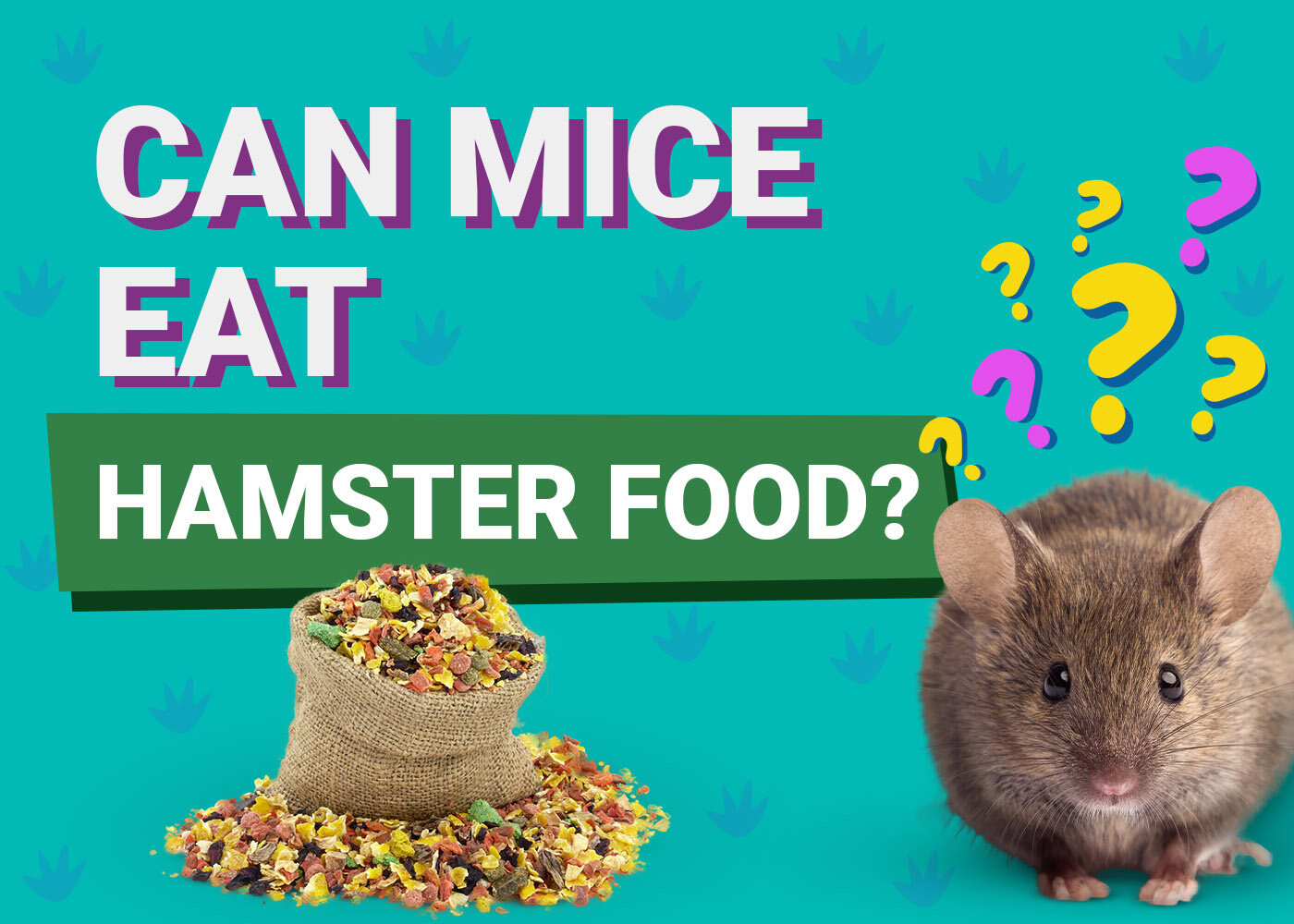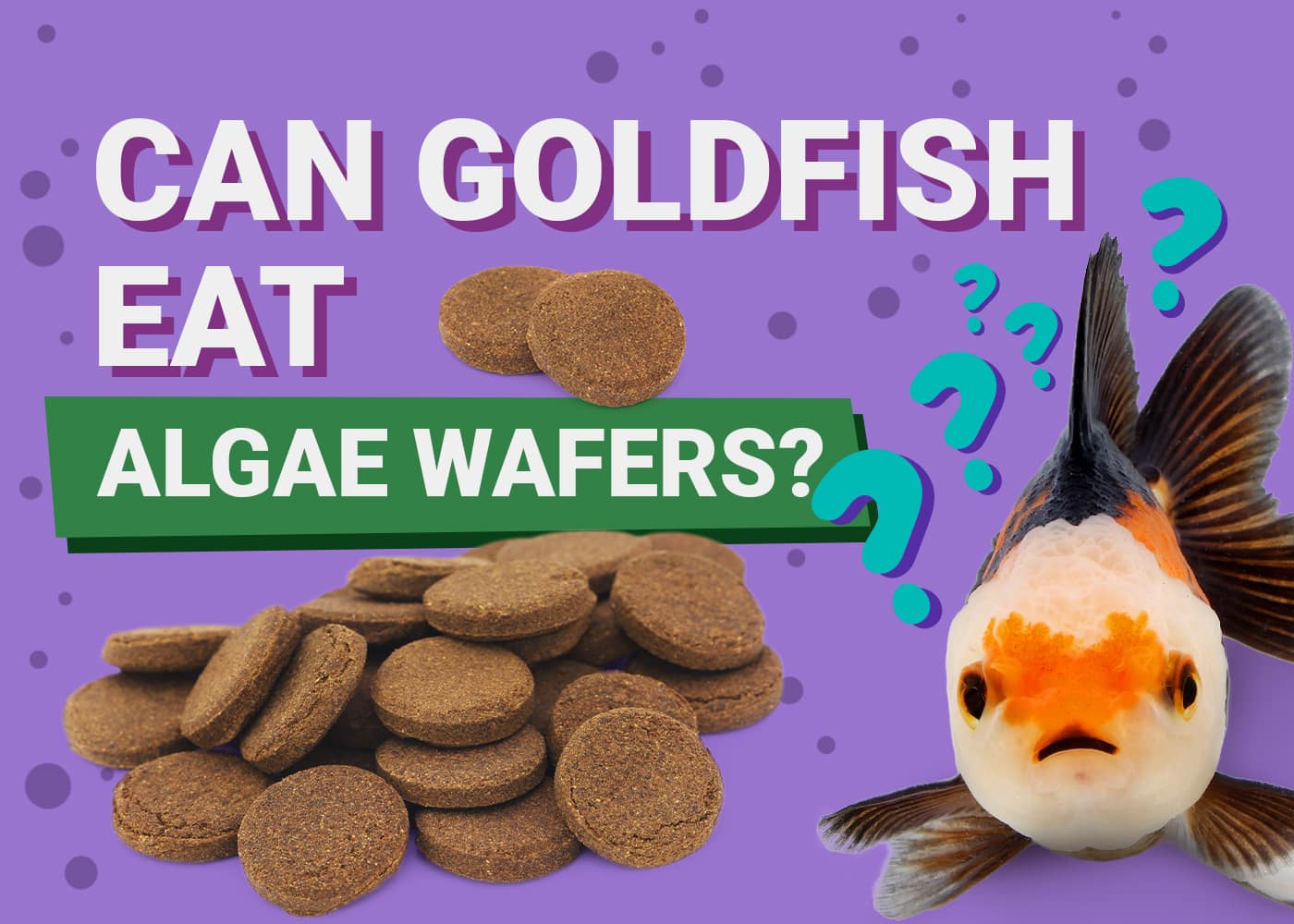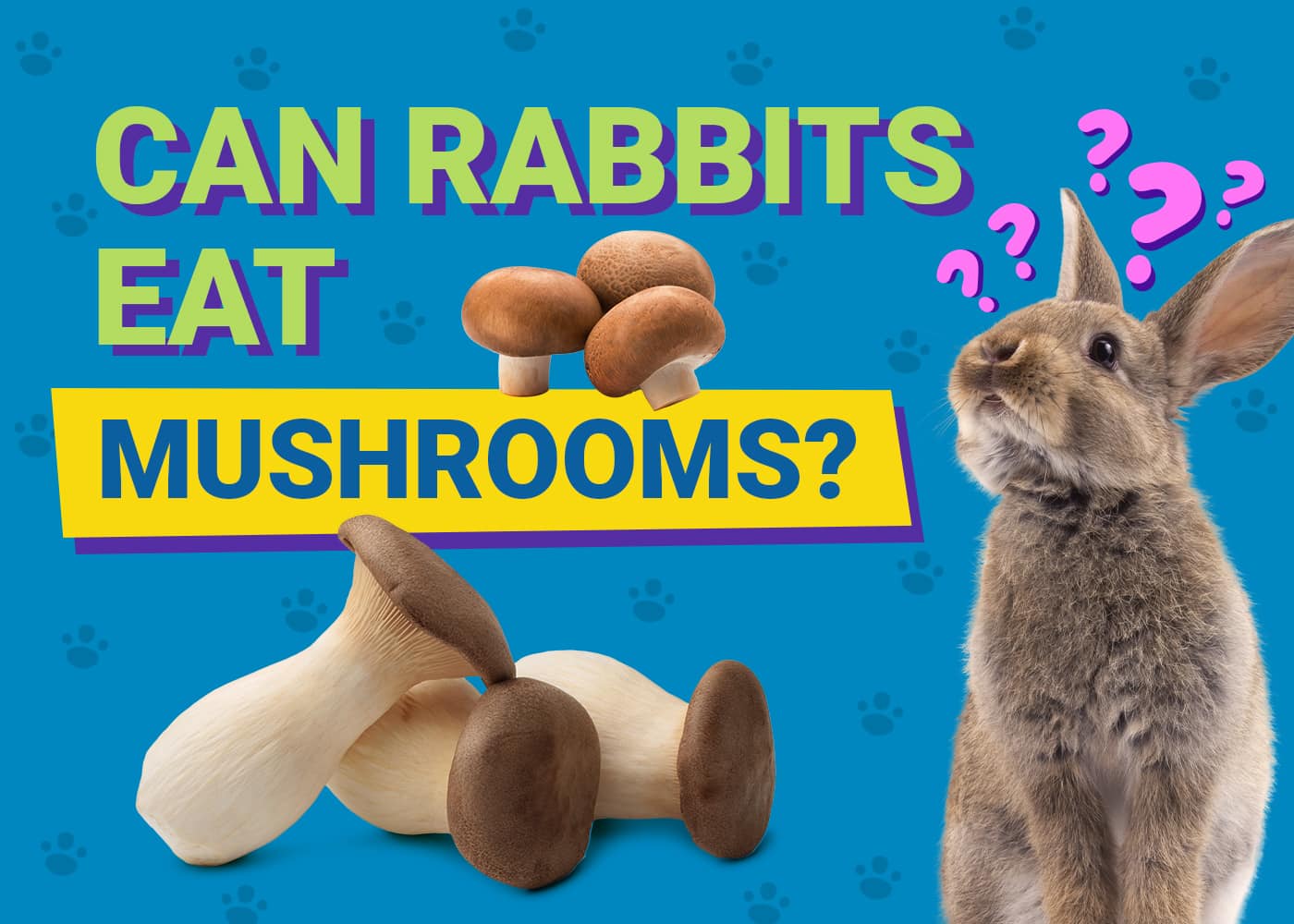VET APPROVED

The information is current and up-to-date in accordance with the latest veterinarian research.
Learn more »Some mouse owners may be wondering if mice can eat hamster food. Yes, mice can eat hamster food, but it’s still best to offer mice food made specifically for them (or food made for both mice and hamsters).
From a nutritional standpoint, the needs of mice and hamsters are relatively the same, and as such, their diets are considered safe for each other.

What Do Both Animals Eat as Pets?
The taxonomic order of rodents includes the families Muridae (which includes all true mice) and Cricetidae (which includes all true hamsters and the New World mice). The nutritional needs of both these families as pets are very similar, and veterinary literature allows for their diets to be used interchangeably for the other.
As pets, mice and hamsters are considered omnivores. From a behavioral perspective, they are scavenging foragers. As such, they benefit from having their food scattered throughout their enclosure so they can explore and dig out at their leisure. This encourages some exercise and provides enrichment as they follow their noses and dig around for tasty morsels to snack on.
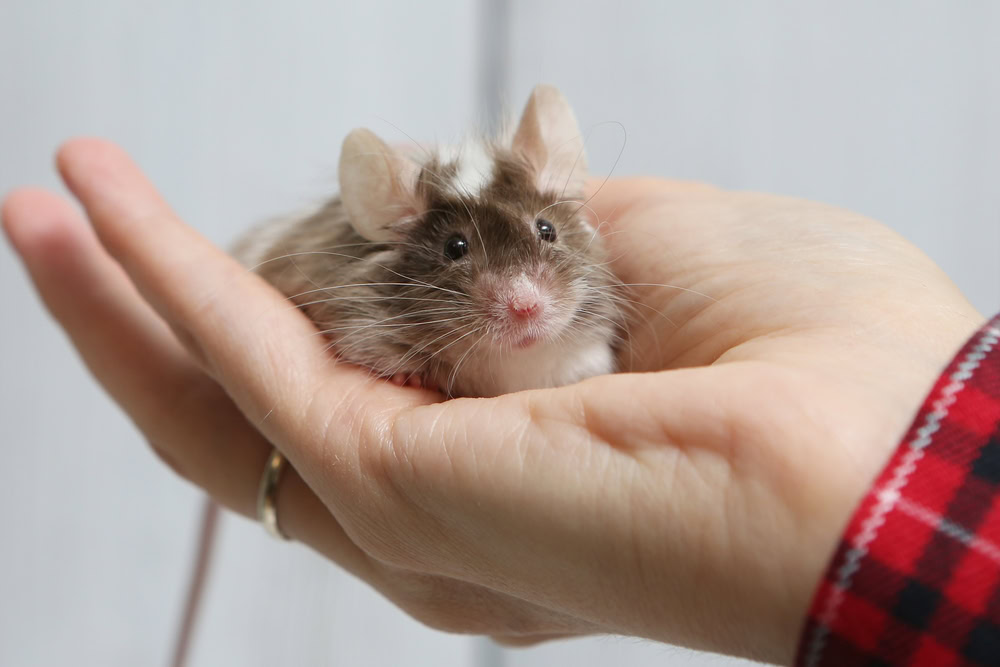
The diet of their wild counterparts is often not used for mice when they’re kept as pets because they often don’t get the same amount of exercise they would get in the wild. In addition, these animals wouldn’t necessarily have optimal nutrition in the wild. In the wild, these animals exist in “survival mode,” and their goal is usually to survive as long as possible (meaning eating less than optimal diets) and reproduce as often as possible. This is because they’re considered prey for other animals.
As pets, it’s recommended that both mice and hamsters be kept on a diet consisting mostly of a commercial pellet. This can be supplemented with other food items such as seeds, grains, protein sources (such as worms for hamsters), and servings of fresh fruits and vegetables (more common for mice than hamsters). Their diet can further be complemented with items that promote chewing and are fiber-rich, such as hay.
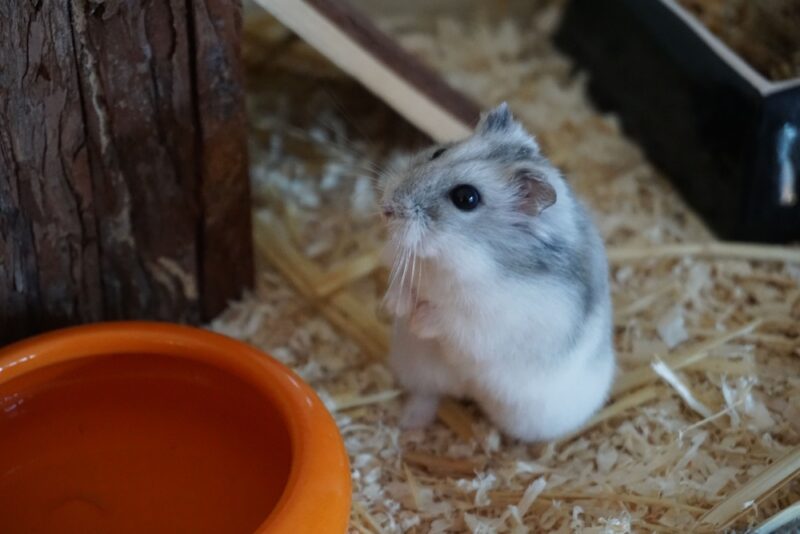

The Verdict: Mice Can Eat Hamster Food
Pet mice can eat hamster food. It isn’t toxic or immediately life threatening for them. However, offering them food made specifically for pet mice is still best. Alternatively, a food mixture made for both hamsters and mice would be acceptable as well.
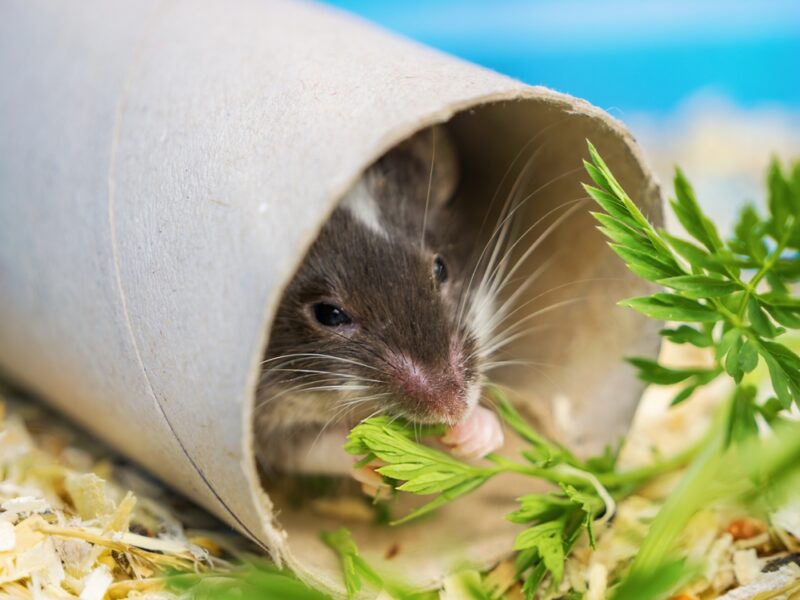
Important Considerations
Do keep in mind that while mice can eat hamster food (and vice versa), neither one of these species should be kept on just pellets. Both of them need their diet supplemented with other foods that are appropriate and safe for them.
Your pet’s nutritional needs will change throughout their life. For example, a pregnant mouse would have different nutritional needs from a mouse that isn’t pregnant. Likewise, a young mouse still growing would have different needs than a mouse that’s already an adult. As such, it’s best to discuss your pet’s nutritional needs with your veterinarian to ensure you’re offering them an appropriate diet for their life stage.

Conclusion
While it may seem strange to provide your pet mouse with hamster food, it isn’t toxic and is likely nutritionally appropriate for them. However, they’re still better off with food intended specifically for mice.
Keep in mind that pellets alone wouldn’t be enough for your mouse’s nutritional welfare. Items like fresh fruits and vegetables should also be included in the diet whenever possible, as these foods are rich in a wide variety of essential nutrients for mice.
Next on your reading list:
Featured Image Credit: Milada Vigerova, Pixabay
